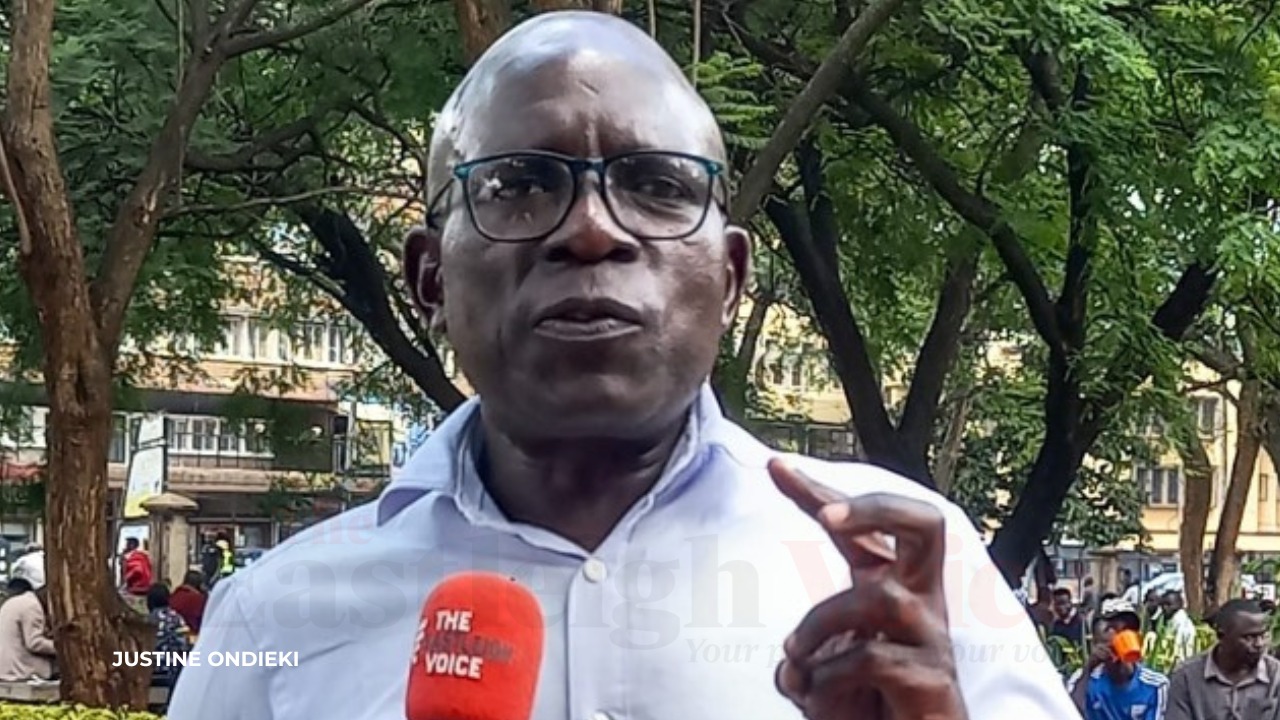Friday deadline for public input on controversial Bill to extend President's term

In addition to extending term limits, the Bill aims to establish the office of the Prime Minister, appointed by the President from among Members of Parliament in the ruling party or coalition.
Kenyans have until Friday, October 25, to share their views on a controversial Bill proposing to extend the term of office for the President and other elected officials from five to seven years.
This comes amid outrage over the proposal contained in the Constitution of Kenya (Amendment) Bill, 2024 by Nandi Senator Samson Cherargei (UDA).
More To Read
- Court halts Constitution Amendment Bill assent pending petition by Katiba Institute
- Senate denies plans to extend presidential term limit, create office of Prime Minister
- Clash looms as Senate pushes for expanded powers in new Bill
- Senators propose Bill to expand powers in fresh bid to counterbalance National Assembly
- Parliament urged to limit tenures of MPs, MCAs to two 5-year terms
- Over 99% of Kenyans oppose proposed extension of presidential term limits - Senate report
The Bill has been subject to public participation since October 2, 2024, under the oversight of the Senate Committee on Justice and Legal Affairs.
Written submissions must be sent to Senate Clerk Jeremiah Nyegenye by Friday, paving the way for a public hearing scheduled for October 25, 2024, at 9 am in the Senate Chamber at Parliament Buildings, Nairobi.
Members of the public are invited to attend this session.
In addition to extending term limits, the Bill aims to establish the office of the Prime Minister, appointed by the President from among Members of Parliament in the ruling party or coalition.
The Prime Minister would serve at the President's discretion and be accountable to Parliament.
Despite its association with the ruling party, the United Democratic Alliance party has distanced itself from the Bill.
UDA Secretary-General Hassan Omar labelled the proposal "repugnant and backward," stating, "The Bill is incompatible with our policy and aspirations."
He urged party members involved with the Bill to reconsider their positions, describing it as a "juvenile political experimentation."
The bill proposes amendments to Articles 152, 156, 157, 166, 215, 228, 229, 245, and 250.
Senate powers
This will allocate the responsibility of approving the appointment of various state officers between the Senate and the National Assembly.
 Nandi Senator Samson Cherargei is the proposer of the Constitution of Kenya (Amendment) Bill, 2024. (Photo: X/Samson Cherargei)
Nandi Senator Samson Cherargei is the proposer of the Constitution of Kenya (Amendment) Bill, 2024. (Photo: X/Samson Cherargei)
Under the new proposal, the Senate will vet and approve appointments for Cabinet secretaries, the Attorney General, the Director of Public Prosecutions, the Chief Justice, and judges, as well as for the chairperson of the Commission on Revenue Allocation, the Controller of Budget, the Auditor General, members of the Public Service Commission, the Inspector General of Police, and members of constitutional commissions.
Currently, these state officers are vetted solely by the National Assembly. The bill also amends Article 229 to ensure that the Auditor General submits annual expenditure estimates directly to Parliament for approval.
While the Senate gains new responsibilities, the National Assembly will maintain its role in vetting high commissioners, ambassadors, and diplomatic representatives.
The proposal designates the Senate as the appropriate forum for filing petitions to remove members of constitutional commissions or independent officeholders, a shift from the current process that relies on the National Assembly.
"The principal object of the Constitution of Kenya (Amendment) Bill, 2024, is to amend the Constitution to, among others, expand the mandate of the Senate," the proposed law reads.
State emergency
Moreover, the bill seeks to amend Article 58 to require involvement from both the Senate and the National Assembly when approving an extension of a state of emergency.
It emphasises that "a state of emergency affects the stability and functioning of the nation as a whole including county governments,"
Furthermore, both Houses of Parliament must now approve the deployment of the Kenya Defence Forces in any part of the country, a process that is currently approved solely by the National Assembly.
The bill also proposes that any legislation, except for money bills, which must originate in the National Assembly can start in either House of Parliament.
Additionally, it aims to amend Article 181 of the Constitution regarding the procedures for the removal of a county governor or deputy governor.
Under this proposal, any challenge to a governor's impeachment by the Senate can only be addressed at the Supreme Court, which must resolve the case within 30 days.
Presently, such matters begin at the High Court.
The proposed legislation increases the percentage of the equitable share of revenue allocated to counties from the current 15 per cent to 40 per cent.
"The Bill seeks to strengthen devolution by aligning the roles and functions of Parliament and all entities at the national and county levels of government in a manner that would promote the effective administration of the devolved system of governance," the proposed law reads.
However, the proposal has faced significant backlash, with critics describing it as impractical and "dead on arrival."
Nairobi Senator Edwin Sifuna called the proposal "manifestly undemocratic," while Nominated Senator Catherine Mumma questioned its necessity, asserting that the President's existing term of 10 years is adequate.
Homa Bay Senator Moses Kajwang' argued that any constitutional amendments should focus on easing the burden on citizens, not extending political terms.
Busia Senator Okiya Omtatah also rejected the proposal, questioning the urgency behind the changes.
Top Stories Today












































